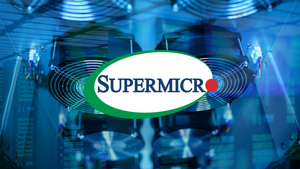
In a landmark move poised to reshape the regulatory landscape for digital assets in the United States, Securities and Exchange Commission (SEC) Chairman Paul Atkins has announced plans to introduce "innovation exemptions" by December 2025. This initiative signals a profound shift towards a more accommodating regulatory environment, aiming to significantly ease the burden on crypto firms seeking to launch products within the U.S. market. The proposal is a cornerstone of the current administration's strategy to foster innovation and solidify America's position as a global leader in the burgeoning cryptocurrency and blockchain space.
This development comes as a welcome relief to an industry often stifled by regulatory uncertainty and an enforcement-heavy approach. By offering conditional relief, the SEC under Atkins aims to create a clear "rules of the road" framework that encourages experimentation and growth, potentially unlocking a new era of digital finance innovation.
A New Dawn for Crypto: What Happened and Why it Matters
SEC Chairman Paul Atkins first hinted at the concept of innovation exemptions in July 2025 as part of his ambitious "Project Crypto." The formal announcement in September 2025, during an interview on Fox Business, set a rapid timeline for implementation, with the exemptions expected to be in place by December 2025. This swift action underscores a deliberate effort to pivot from previous regulatory strategies that were often criticized for stifling innovation and driving crypto talent offshore.
The core of Atkins's proposal is to grant crypto firms "conditional relief," allowing them to introduce new products and services without immediately facing overly burdensome or incompatible prescriptive regulatory requirements. This framework is designed to apply to both registered and non-registered entities, providing a structured pathway for innovation while ensuring consumer protection remains paramount. Key aspects include facilitating "super-apps" capable of trading multiple asset classes, including traditional securities and cryptocurrencies, under a single license. Crucially, the exemption seeks to offer a safe harbor for Decentralized Finance (DeFi) developers and blockchain platforms, provided they demonstrate genuine decentralization, support self-custody, and adhere to investor protection measures, aligning with the "maturity" criteria outlined in the CLARITY Act. Furthermore, the SEC is actively exploring frameworks to promote tokenization, including new trading methods and targeted relief for firms building tokenized securities ecosystems, with Atkins emphasizing that "if an asset can be tokenized, it will be tokenized." The initiative also includes a focus on standardized smart contract disclosures and a regulatory sandbox for token launches, aiming to reduce legal uncertainty for startups.
Atkins's rationale is rooted in a desire to address the persistent regulatory uncertainty that has long plagued the crypto industry. He has openly criticized the "enforcement-heavy strategy" of the past, advocating for a collaborative approach that prioritizes formal rulemaking. This strategic pivot aims to position the U.S. as the "crypto capital of the planet," encouraging domestic innovation and preventing brain drain to more crypto-friendly jurisdictions. The Chairman believes that many existing securities rules are ill-suited for the rapid advancements in blockchain technology and that modernizing these rules is essential for reinvigorating U.S. capital markets. Initial reactions from industry stakeholders have been "cautiously optimistic," with many viewing this shift as a "breath of fresh air" and a positive step for America. However, the SEC has also clarified that genuine decentralization will be a key factor, preventing centralized entities from simply labeling themselves decentralized to evade regulation.
A Tidal Wave of Opportunity: How Innovation Exemptions Might Affect the Market
The introduction of "innovation exemptions" is poised to unleash a wave of transformative change across the U.S. crypto market, significantly impacting firms and the broader financial ecosystem. For crypto firms, the most immediate and profound effect will be a substantial reduction in regulatory burdens. This streamlined process is expected to accelerate product development and launch cycles, providing greater predictability and reducing the legal uncertainties that have historically hampered innovation. Startups and established players alike will find it easier to experiment with and deploy on-chain financial products and services, fostering a more dynamic and competitive environment.
The broader U.S. crypto market stands to gain immensely. By providing clear guidelines and a more supportive regulatory framework, the initiative is designed to cement the U.S. as a global hub for decentralized finance (DeFi) and blockchain technology. This could lead to a surge in technological advancement, attracting increased institutional participation and venture capital funding. The enhanced clarity and reduced risk associated with launching crypto products domestically are likely to draw in more developers and entrepreneurs, boosting the overall growth and adoption of crypto within the U.S. ecosystem. Efforts to harmonize oversight with the Commodity Futures Trading Commission (CFTC) are also underway, promising an even more stable and predictable regulatory landscape. This could pave the way for new avenues of integrating crypto into traditional financial systems, such as diversified retirement portfolios, further mainstreaming digital assets.
In terms of winners and losers, the landscape will likely see a significant reordering. Winning companies will primarily be innovative crypto startups and DeFi platforms that can demonstrate genuine decentralization and a commitment to investor protection. Firms focused on tokenization, particularly those building ecosystems for tokenized securities, are also set to thrive. Companies developing "super-apps" that integrate various financial services, including traditional and digital assets, under a single compliant framework, could see substantial growth. Established crypto exchanges like Coinbase Global, Inc. (NASDAQ: COIN) and Kraken could benefit by expanding their offerings with greater regulatory clarity, potentially attracting more institutional clients and retail investors. Conversely, losing entities might include firms that have relied on regulatory ambiguity to operate or those unwilling or unable to meet the new criteria for decentralization and investor protection. Companies that might have indirectly benefited from a less competitive environment due to the previous "regulation by enforcement" approach could find themselves facing increased competition from newly enabled innovators.
Broader Implications: A Paradigm Shift for Digital Assets
The proposed innovation exemptions represent more than just a regulatory adjustment; they signify a paradigm shift in how the U.S. views and intends to integrate digital assets into its financial framework. This move fits squarely into broader industry trends emphasizing the need for regulatory clarity and the mainstream adoption of blockchain technology. Globally, nations have been vying for leadership in the crypto space, and the U.S.'s proactive stance could significantly influence international regulatory standards, potentially encouraging other jurisdictions to adopt similar innovation-friendly policies.
This initiative has significant regulatory and policy implications. It signals a departure from a reactive, enforcement-led approach to a more proactive and "fit-for-purpose" regulatory framework. By creating specific exemptions, the SEC acknowledges that existing securities laws, designed for a different era of financial instruments, may not be entirely suitable for rapidly evolving decentralized technologies. This pragmatic approach could set a precedent for future regulatory adaptations in other emerging tech sectors. Historically, periods of significant technological innovation, such as the rise of the internet or the dot-com boom, have often necessitated regulatory recalibration to foster growth while mitigating risks. The current proposal draws parallels to these moments, aiming to strike a balance between fostering innovation and safeguarding investors. The potential ripple effects on competitors and partners are also considerable. As the U.S. becomes a more attractive hub for crypto innovation, it could draw talent and capital away from less accommodating jurisdictions, intensifying global competition in the digital asset space.
What to Pay Attention to Next
As the December 2025 deadline for implementing the "innovation exemptions" approaches, market participants and enthusiasts alike should closely monitor several key developments. In the short term, the specifics of the exemption criteria will be paramount. How precisely will "decentralization" be defined? What are the exact investor protection measures that firms must adhere to? The devil, as always, will be in the details of the formal rulemaking and guidance issued by the SEC. Furthermore, the ongoing collaboration and harmonization efforts between the SEC and the CFTC will be crucial for establishing a truly coherent and stable regulatory environment across different types of digital assets.
In the long term, attention should be paid to how crypto firms adapt their strategies to leverage these new exemptions. Will we see a rapid proliferation of new on-chain products and services? How will traditional financial institutions respond to these new pathways for crypto integration, particularly in areas like retirement portfolios and institutional investment? Market opportunities are likely to emerge in areas like tokenized real-world assets, DeFi lending protocols, and compliant "super-apps." However, challenges will also persist, including the need for robust compliance frameworks within firms and the potential for new regulatory hurdles if the initial exemptions prove too narrow or difficult to navigate in practice. Potential scenarios range from the U.S. firmly establishing itself as the undisputed global leader in crypto innovation to a more gradual evolution, depending on the practical implementation and industry's ability to adapt.
Conclusion: A Defining Moment for US Crypto Leadership
SEC Chairman Paul Atkins's proposed "innovation exemptions" mark a defining moment for the U.S. cryptocurrency market. The initiative represents a fundamental shift towards a more constructive and forward-thinking regulatory approach, signaling a strong commitment to fostering innovation and securing America's leadership in the global digital asset space. The key takeaways are clear: reduced regulatory burdens for crypto firms, a boost to domestic innovation, and a more predictable environment for product launches.
Moving forward, the market is poised for significant growth and evolution. Investors should closely watch for the specific details of the exemptions, the industry's response in terms of new product development, and the continued collaboration between regulatory bodies. The success of this initiative will not only be measured by the number of new crypto products launched but also by its ability to attract and retain top talent, stimulate venture capital investment, and seamlessly integrate digital assets into the broader financial system. While challenges will undoubtedly arise, the overall sentiment suggests that the U.S. is on the cusp of unlocking the full potential of its crypto economy, making the coming months critical for all stakeholders.





